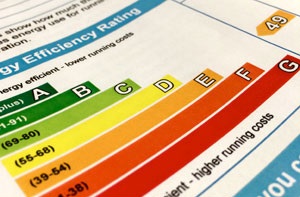 More social landlords and their tenants could soon be benefiting from renewable heating, helping them have warmer homes and lower bills.
More social landlords and their tenants could soon be benefiting from renewable heating, helping them have warmer homes and lower bills.
Changes to the domestic Renewable Heat Incentive (RHI) mean that from Spring 2015 registered social landlords will no longer be required to have a Green Deal Assessment in order to apply for the RHI scheme.
If social landlords already have Energy Performance Certificates for their properties, and these are less than two-years-old, they will be able to apply to the scheme without requiring a Green Deal Assessment.
Amber Rudd MP, Parliamentary Under Secretary of State for Climate Change said:
“Renewable heating is a win-win for everyone – landlords, tenants and the environment.
“Social landlords often provide homes for some of the most vulnerable people, by making the RHI more accessible to them, we hope more of their tenants will be able to enjoy warmer homes and lower bills.”
Latest statistics on fuel poverty show there are 2.28 million fuel poor households in the UK, and 365,000 of them live in social housing.
Fuel poverty can be exacerbated for some if they need to pay upfront for their heating as is the case for many with oil fired systems.
Ralph Retallack, energy efficiency project manager at Coastline Housing, in West Cornwall, already has over 200 properties using renewable air source heat pump (ASHPs) heating systems, 130 of which have so far been accredited under the domestic RHI.
Ralph said:
“Where we have installed ASHP in our properties the feedback from tenants has been very good. Those who were previously unable to afford oil to heat their homes say it has transformed their properties.
“The upfront cost of oil is the problem – the minimum order is 500 litres which costs from around £270 up to £370, depending on market fluctuations.
“Electricity is required to run the air source systems, but our tenants can budget weekly for heat and hot water which is preferable, and enables them to enjoy a comfortable living environment at an affordable price.
“Our tenant customers have much warmer homes and lower bills – and Coastline receives the RHI payments to offset the cost of installation, so it works well for everyone.”
Andrew Burke, of the National Housing Federation, said:
“These changes to the RHI will reduce the unnecessary bureaucracy and costs for social landlords applying for the RHI but the real benefit will be for their tenants, who will have warmer homes and lower energy bills. Renewable heating makes a big difference by reducing fuel poverty in off-gas grid areas.”
A further change to the domestic RHI scheme will see the list of eligible technologies expand to include cooker stoves from spring 2015. These are biomass stoves with back boilers, mainly designed for space and hot water heating, but can also be used for cooking. As cooker stoves are biomass stoves, they will receive the biomass tariff of 12.2p/kWh.
This means the list of heating systems now eligible under the domestic RHI scheme includes:
| Technology |
Tariff |
| Air-source heat pumps |
7.3p/kWh |
| Ground and water source heat pumps |
18.8p/kWh |
| Biomass-only boilers and biomass pellet stoves with integrated boilers (including cooker stoves) |
12.2p/kWh |
| Solar thermal panels (flat plate and evacuated tube for hot water only) |
19.2 p/kWh |
 Installers are being encouraged to get involved with the Ladder Exchange Scheme, which aims to eradicate dangerous ladders from UK workplaces by offering substantial discounts when they are exchanged for new ones.
Installers are being encouraged to get involved with the Ladder Exchange Scheme, which aims to eradicate dangerous ladders from UK workplaces by offering substantial discounts when they are exchanged for new ones.



